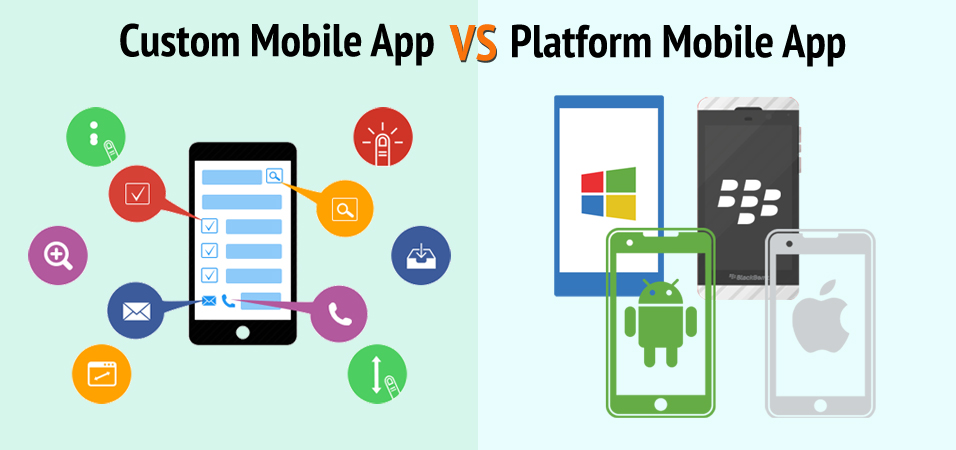Mobile application development is often a crucial factor in the business development of any organization, no matter what size it is. In fact, a business’s customer acquirement, growth, revenue etc. are highly dependent on the decisions they make regarding their mobile application development.
For your information – According to a recent US statistics, almost 56 percent of customer traffic driven to some of the leading US websites is attained from mobile devices.
With so many mobile application platforms available all around the online market, it becomes really complex to find out the ideal technology fit for your business. Through this article, we will be encountering some major differences that you need to know before considering a platform mobile app or a Custom Mobile App.
Custom Mobile Application:
Custom mobile applications are really helpful in creating distinct and creative business deployment platform for your company. Businesses that need to enforce unique revenue generating customer strategy can go for this mobile development style. The major idea here is to create a mobile application right from the scratch after analyzing all the needs of the business. Being a consistent activity, custom application development is essentially time involving but the amazing after results can be worth investing your time in.
According to CDW statistics, about eighty-two percent of businesses believe that custom mobile apps have greatly helped their business with better revenue.
Take a look on the comparative examination of positives and negatives of custom app development –
Pros:
- Creative in implementation
- Adheres to your business requirements
- Functionality can be tailored as per needs
- You will the source code and IP of App
- There are practically no limitations for design
Cons:
- Could be time-consuming
- Needs dedicated resources for implementation
Platform Mobile Application (also known as Pre-Built Mobile Application):
Platform mobile application development is like starting with a pre-created template and then working your design up according to the business. Since these applications have reusable modules hence developing code for these applications is often quite easy. There is ease of altering and scaling your mobile applications even after development, hence providing flexibility to businesses requiring this change. This application development strategy is great for individuals or small startups that are willing to get the mobile app business out as soon as possible.
Take a look on the comparative examination of positives and negatives of platform app development –
Pros:
- Rapid development
- Low cost and predictable
- Reusable source code
- Low risk
- Fast deployment
Cons:
- User Interface can be a challenge
- Dependent on a third party platform
- Slow performance
- Sometimes difficult to adhere to business model
Hope this comparative discussion gave you a clear perspective on which application development platform you should really go for.






